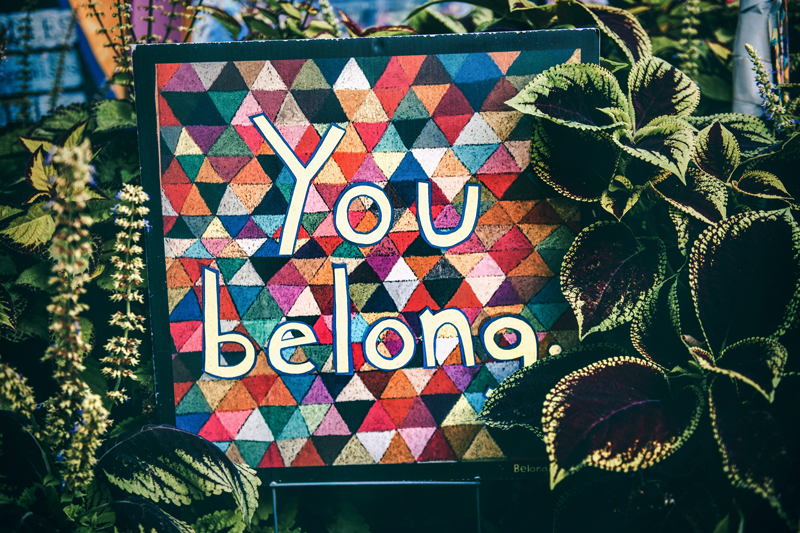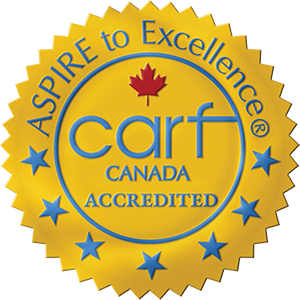Cultural Competency, Diversity & Inclusion Plan
The Family Support Institute of British Columbia (FSI) is committed to fostering a culture of Cultural Competency, Diversity, and Inclusion (CCDI) within the organization.
Since our beginnings in 1985, FSI has had diversity and inclusion of all people with disabilities at the heart of our work.
Our purpose is to create a welcoming and supportive environment where individuals and families from diverse backgrounds and abilities feel valued, respected, and empowered. By prioritizing cultural understanding and promoting accessibility, we strive to fulfill the CCDI goals where barriers are eliminated, and everyone can thrive. FSI’s mission of supporting and valuing individuals and families with disabilities alongside connecting and building communities is intertwined in our CCDI plan.

Definitions
Our overarching work in disability has intersection with the following:
Cultural Competency
The ability to understand, appreciate, value, and respond effectively to the unique cultural needs, perspectives, and practices of individuals and communities. It embodies the capacity for self-assessment and adapting service delivery to reflect the understanding of cultural diversity. Being conscious of the dynamics inherent when cultures interact is also a key component.
Diversity
Embracing and celebrating the rich tapestry of differences in age, gender, sexual orientation, spiritual beliefs, socio-economic status, language, and race that contribute to the unique identity of each person.
Inclusion
Creating an intentional environment that actively promotes and values the participation and contribution of all individuals, regardless of their abilities, fostering a sense of belonging and equity.
Considerations
The Family Support Institute of BC considers the following aspects of diversity in our work:
Culture
Culture encompasses the shared beliefs, values, customs, traditions, and practices of a particular group of people. This includes aspects such as language, religion, cuisine, arts, and social habits. Cultural competence involves understanding, respecting, and effectively interacting with individuals from different cultural backgrounds.
Physical or Mental Disabilities
Physical or mental disabilities are any condition of the body or mind that makes it more difficult for the person with the condition to do certain activities. Physical disabilities may affect a person’s physical capacity and/or mobility, while mental disabilities affect a person’s thinking, emotional state, and behaviors. Celebrating the diversity of abilities is part of committing to a culture of inclusion and equity for people with disabilities.
Age
Age refers to the number of years a person has lived and the life stage they are currently in. Age diversity recognizes and values the contributions and perspectives of individuals from different generations, whether they are younger, older, or in between. We recognize the different aspects and unique challenges that families face in all ages and stages of life, for both caregivers and their loved ones across the lifespan.
Neurodivergence
Neurodivergence is when someone’s brain processes, learns, and/or behaves differently from what is considered “typical.” It is the recognition that there are natural differences in brain cognition and processing that are not necessarily deficits.
Gender
Gender refers to the socially constructed roles, behaviors, expressions, and identities that a particular society considers appropriate for men, women, and people of other genders. Gender diversity acknowledges and respects the spectrum of gender identities beyond the traditional binary of male and female.
Socio-Economic Status
Socio-economic status (SES) refers to an individual’s or group’s position within the social and economic hierarchy. It includes factors such as income, education, occupation, and access to resources. Recognizing socio-economic diversity involves addressing disparities and ensuring equitable opportunities for individuals from different socio-economic backgrounds.
(FSI strives to support families to address the effects of disability in their economic circumstances and bridging families to funding and financial supports. FSI aims to provide all supports and services at no cost.)
Language
Language encompasses the communication system used by individuals to express thoughts, ideas, and emotions. Language diversity refers to the variety of languages spoken and understood by individuals within a community, including all world languages, Indigenous languages, dialects, sign languages, and communication styles.
In the context of Cultural Competency, Diversity, and Inclusion (CCDI), it means recognizing, respecting, and valuing the role that language plays in shaping identity, culture, and access to information and opportunities. Embracing language diversity involves creating environments where language differences are celebrated and supported. It also requires addressing systemic barriers that may arise from language differences, ensuring equitable access to resources and participation. We strive to provide translation resources when needed that have a disability specific lens.
Sexual Orientation
Sexual orientation refers to an individual’s emotional, romantic, or sexual attraction to others. It includes but is not limited to identities such as heterosexual, homosexual, bisexual, pansexual, asexual and Two-Spirit. Embracing sexual orientation diversity involves creating spaces where individuals of all sexual orientations feel safe, supported, and empowered to be their authentic selves without fear of discrimination or judgment.
Race
Race refers to a social construct used to categorize people based on physical characteristics such as skin color, hair texture, and facial features. Racial diversity recognizes the diversity of racial and ethnic identities within a community or organization. It involves promoting anti-racism, challenging racial stereotypes, and creating opportunities for individuals from different racial backgrounds to thrive and contribute.
Spiritual Beliefs
Spiritual beliefs encompass an individual’s personal philosophy, religious affiliations, and spiritual practices. Diversity in spiritual beliefs acknowledges the variety of religious and philosophical perspectives held by individuals and fosters an environment of respect, understanding, and accommodation for different faith traditions that should be considered when providing support.
Cultural Competency, Diversity & Inclusion in FSI’s Work
The Family Support Institute of BC recognizes the inherent dignity and rights of all individuals accessing its services and complies with all applicable governmental laws and regulations, including but not limited to the Canadian Charter of Rights and Freedoms, the Canadian Human Rights Act, the BC Human Rights Act, and the United Nations Declaration on the Rights of Indigenous Peoples.
We strive to imbue the principles of Cultural Competency, Diversity and Inclusion in all our activities, including, but not limited to, the following:
Recruitment and Staffing (including Board of Directors): FSI is committed to recruiting a diverse workforce that reflects the communities we serve. We will implement inclusive recruitment practices, ensuring diverse representation at all levels, including leadership positions.
Orientation & Training: FSI will provide comprehensive cultural competency training for all staff and board members, addressing the unique needs and sensitivities associated with culture, age, gender, neurodivergence, physical and mental disabilities, sexual orientation, spiritual beliefs, socio-economic status, language, and race.
Service Design & Accessibility: FSI will actively consider the diverse needs of the people we serve and tailor our services to be accessible and culturally responsive. We will engage in ongoing assessment and improvement to ensure inclusivity in our service delivery, aiming to eliminate barriers and provide equitable access for everyone.
Community Connections & Engagement: FSI will actively seek partnerships and collaborations with organizations representing diverse communities. We will continue to foster our relationships with disability related community partners. We will engage in culturally sensitive outreach to ensure that our services are known and accessible to everyone.
Communications: FSI will develop communication strategies that are accessible, culturally sensitive, accommodating varying abilities, and inclusive. We will use plain language, strive to provide materials in multiple formats, and promote a culture of active listening and dialogue. This includes using diverse representation in promotional materials, embracing multilingual communication, and avoiding stereotypes.

